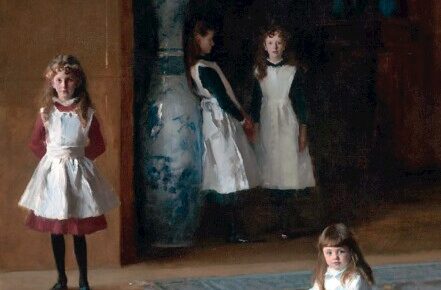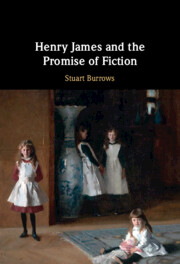
Henry James has long been recognized as one of the most important theorists of the novel. His extensive reflections on fiction, together with his overriding concern with questions of ethics, explains why his work is of such of importance to contemporary novelists, such as Rachel Cusk, Maggie Nelson, and Ali Smith. But no critic has as yet attempted to understand the relationship between his ethical vision and his densely metaphorical style, his experiments with narrative time, and his radical reimagining of perspective. Studies of the relationship between literature and morality, in James as in other writers, have focused up until now on questions of plot, on what happens to the characters and how they act toward each other. My study, in contrast, argues that the moral issues raised by a work of fiction are as much a product of its form as of its content. Henry James and the Promise of Fiction proposes that James’s radical experiments with questions of point of view, narrative voice, and metaphor should be viewed as a contribution to ethical thought, a contribution only close reading is able to make evident.
Each chapter of Henry James and the Promise of Fiction focuses on a different aspect of an issue that has long been at the heart of moral philosophy: the act of promising, which I argue functions as the governing trope of James’s work. The question of the promise is central to the thinking of David Hume, Immanuel Kant, Friedrich Nietzsche, and Jacques Derrida, and their competing definitions, denigrations, and dismissals of the promise provide the framework for my readings of James’s fiction. For Hume, the obligation to keep our promises is a product of the imperative to maintain “the climate of trust” essential to the workings of society. Yet as Robert Pippin observes in Henry James and Modern Moral Life (Cambridge, 2000), James’s characters have “little basis even for a minimum trust.” How then can we account of the fact that promises play a key role in so many of James’s stories and novels? I am thinking of the pledge Isabel Archer issues to her step-daughter Pansy that she will “come back” in The Portrait of a Lady; the “vow of blind obedience” sworn by Hyacinth Robinson to a group of anarchists in The Princess Casamassima; the oath Lambert Strether makes to ‘save’ Madame de Vionnet in The Ambassadors; the vow to shield Adam and Maggie Verver from knowledge of their affair taken by the Prince and Charlotte Stant in The Golden Bowl.
The peculiar feature of such promises is that almost every one misfires: they are said at the wrong time, or to the wrong person, or concern what cannot be done, or has already been done, or should not be done. These “unhappy” promises, to use the term coined by J. L. Austin in How to Do Things With Words (Oxford, 1962), represent a reordering of the fundamental moral elements of the nineteenth century novel: the solemnly-held pledges, deeply-felt obligations, and carefully-observed wedding vows. James’s notion of the promise is the inverse of that taken by the Kantian tradition of moral philosophy. For what matters to James is less the relation between the person who makes the promise and the person to whom the promise is made, than the temporal peculiarity of the promise, the fact that it establishes what Shoshana Felman in The Scandal of the Speaking Body (Stanford, 2002) refers to as “continuity in time.” Promises fuse together the moment in which one gives one’s word and the moment in which one keeps it. As a result, for James promises concern identity as much as morality. But this is not to say that they are divorced from moral considerations. The trope of promising, I maintain, exemplifies James’s sense of the moral value of writing, which for him inheres in what he calls the “traceable” relation between the artist and their work.

Henry James and the Promise
of Fiction by Stuart Burrows
Latest Comments
Have your say!